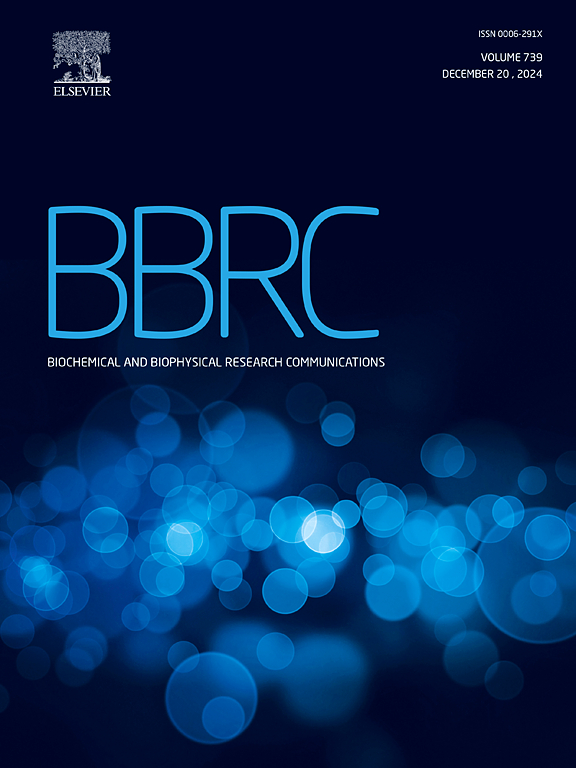长期有氧运动增强肝脏健康:miRNA调控与氧化应激缓解
IF 2.5
3区 生物学
Q3 BIOCHEMISTRY & MOLECULAR BIOLOGY
Biochemical and biophysical research communications
Pub Date : 2025-03-20
DOI:10.1016/j.bbrc.2025.151677
引用次数: 0
摘要
本文章由计算机程序翻译,如有差异,请以英文原文为准。
Long-term aerobic exercise enhances liver health: miRNA regulation and oxidative stress alleviation
This study aims to investigate the effects of long-term aerobic exercise on liver health in aging rats. As age increases, the continuous accumulation of endogenous reactive oxygen species (ROS) damages hepatocytes, leading to liver function decline and the development of diseases such as cirrhosis and liver cancer. Using an 18-month-old rat model, we implemented an eight-month aerobic exercise regimen to systematically evaluate its hepatoprotective effects. The results showed that aerobic exercise effectively reduced oxidative stress and inflammation levels in liver tissue, decreased the expression of cell cycle regulator P53 and inflammatory regulator NF-κB protein, upregulated NRF2 protein expression, improved mitochondrial function, and inhibited the progression of ferroptosis. These beneficial effects were achieved through the upregulation of miR-21 and miR-224 expression induced by exercise. These microRNAs inhibit the translation of MAP2K3 and MAPK14, thereby suppressing the activation of the P38 MAPK pathway. We further found that inhibiting P38 MAPK can enhance cellular antioxidant and anti-inflammatory capabilities, reversing hepatocyte damage caused by hydrogen peroxide. These results demonstrate that long-term aerobic exercise can reprogram aging-related oxidative stress and metabolic pathology by regulating miRNAs and the P38 MAPK pathway, thereby helping to prevent age-related liver diseases.
求助全文
通过发布文献求助,成功后即可免费获取论文全文。
去求助
来源期刊
CiteScore
6.10
自引率
0.00%
发文量
1400
审稿时长
14 days
期刊介绍:
Biochemical and Biophysical Research Communications is the premier international journal devoted to the very rapid dissemination of timely and significant experimental results in diverse fields of biological research. The development of the "Breakthroughs and Views" section brings the minireview format to the journal, and issues often contain collections of special interest manuscripts. BBRC is published weekly (52 issues/year).Research Areas now include: Biochemistry; biophysics; cell biology; developmental biology; immunology
; molecular biology; neurobiology; plant biology and proteomics

 求助内容:
求助内容: 应助结果提醒方式:
应助结果提醒方式:


